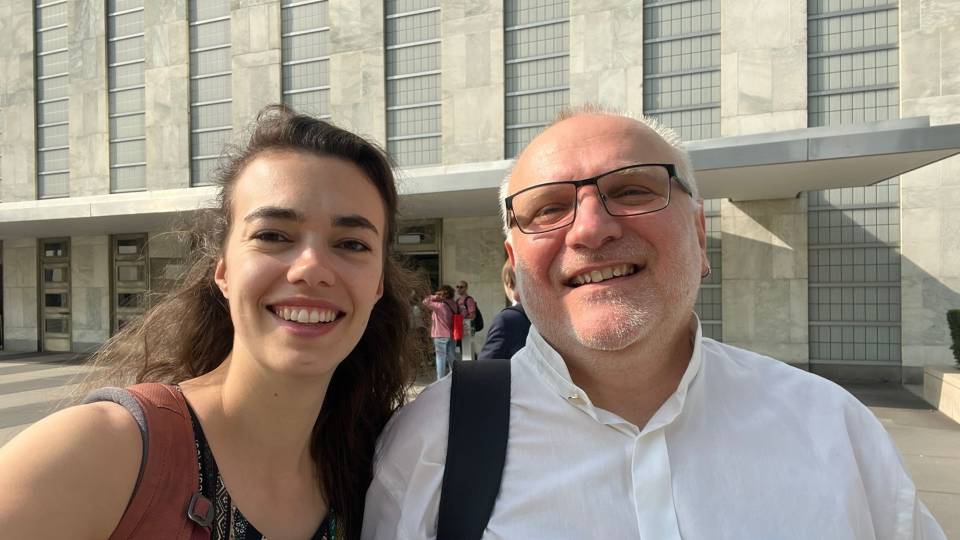Professor Ed Brown, Research Director of the Loughborough-led Modern Energy Cooking Services (MECS) programme, was one of 77 representatives invited to attend the Global Expert Group Meeting to support the upcoming mid-point review of the United Nations Sustainable Development Goal 7 (Affordable and Clean Energy) at the UN’s High-Level Political Forum on Sustainable Development (HLPF) in July.
The meeting, which took place on 11 and 12 May, brought together leading experts, policy influencers and industry representatives to examine the progress, challenges, and potential solutions in achieving universal access to affordable, reliable, sustainable and modern energy by 2030.
Currently, over a third of the world’s population cook using polluting fuels, leading to around four million premature deaths each year, primarily among women and children. Using traditional solid fuels - such as charcoal and wood - also has a significant impact on climate change, contributing as much as 3% of total CO2 emissions each year.
At the meeting, Professor Ed Brown and MECS researcher Dr Anna Clements discussed how a pivot to cooking with electricity, known as eCooking, could leverage investments made in infrastructure improvements to accelerate access to clean cooking.
Professor Ed Brown said: “Clean cooking, especially the use of modern, energy-efficient electric cooking devices, is a frequently overlooked yet critical climate solution for decarbonisation.
“While significant progress has been made in enhancing access to electricity over the last decade, these gains have largely been disconnected from the enduring problem of clean cooking. Every cent invested in a strong electrical grid is also potentially useful for clean cooking.
“Drawing on existing infrastructure spend on electricity – rather than relying on bespoke funding for clean cooking – could offer an easy connection between access and decarbonisation, and provide significant benefits to the climate, environment, people’s health and their livelihoods.”
The MECS programme is led by the Sustainable Transitions: Energy, Environment and Resilience Centre (STEER), within the School of Social Sciences and Humanities at Loughborough University. The seven-year £40 million UK Aid (FCDO) funded programme works across 16 countries and aims to accelerate access to clean, electric cooking on a global scale.
Researchers from STEER also lead the Climate Compatible Growth (CCG) programme, a £38 million UK ODA-funded research programme helping developing countries take a path towards low carbon development whilst simultaneously unlocking profitable investment in green infrastructure, opening up new markets and supporting delivery of the Sustainable Development Goals (SDGs).
